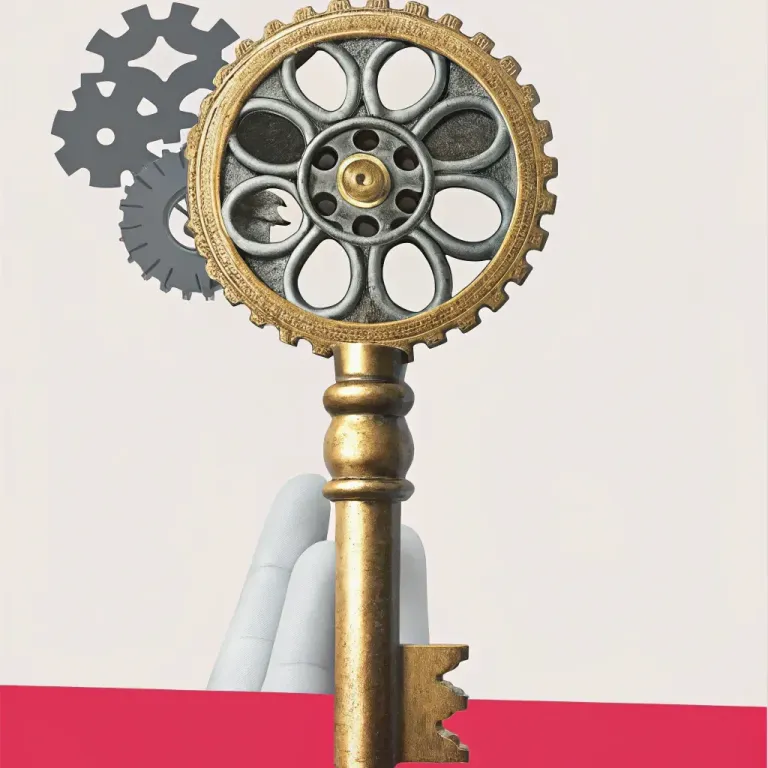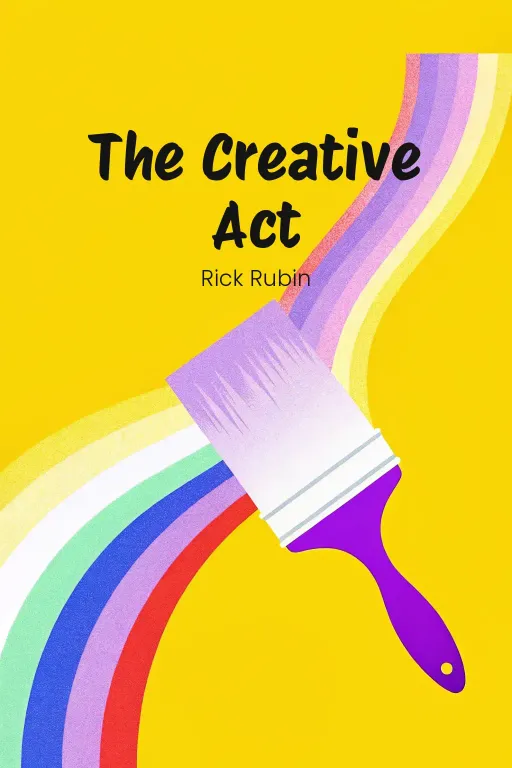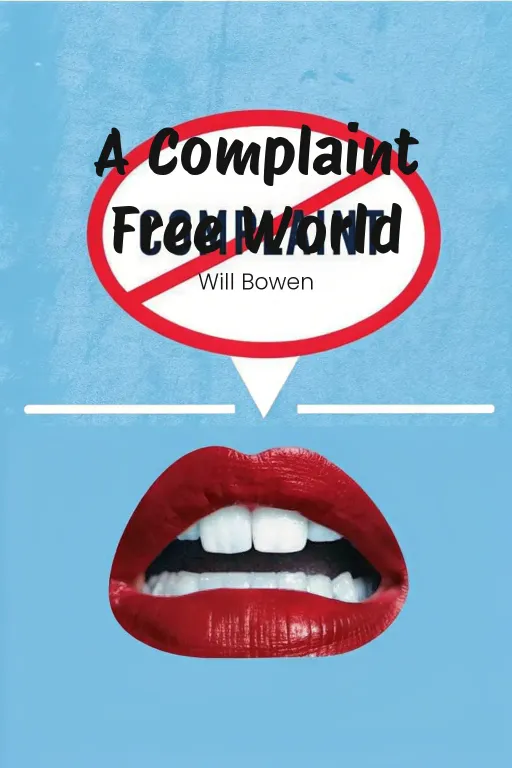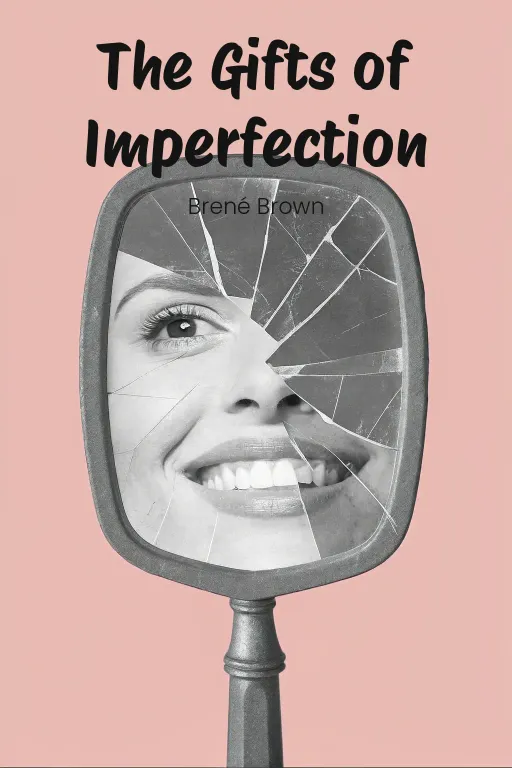
Life's Remix: Ditch the Script, Design YOU
Podcast by Beta You with Alex and Michelle
10 Unconventional Laws to Redefine Your Life and Succeed On Your Own Terms
Introduction
Part 1
Alex: Hey everyone, welcome back! Today we're jumping into a book that’s all about, well, rewriting the rules of your life. Prepare to challenge those deeply held beliefs and norms and really start creating a life that feels authentically you. Michelle: Hold on, are… are we talking about dismantling society here? Because honestly, I'm still working on that mortgage. Alex: <Laughs> Not exactly tearing down society, Michelle, but… kind of, yeah. “The Code of the Extraordinary Mind” by Vishen Lakhiani, it's all about questioning these invisible "Brules"—he shortens it from "bullshit rules"—that are holding us back. And it gives us a framework for consciously reprogramming our minds. Think personal growth meets operating system update. Michelle: So, like, ditching the old floppy disks for cloud storage... but for our brains? I dig it. Alex: Precisely! The book lays out ten laws for extraordinary living. These laws are all about building resilience, discovering our purpose, and really aligning ourselves with what truly makes us happy. Michelle: Okay, that sounds amazing, in theory. But… how do you actually do that? Is there a step-by-step guide, or are we just supposed to close our eyes and hope for enlightenment? Alex: That's where we come in! So, today, we’ll start by uncovering how these societal Brules, these "bullshit rules," shape our limits and, more importantly, how to break free from them. Then, we'll explore consciousness engineering—which is basically upgrading your beliefs and habits. And finally, we'll get into bending reality and mastering "Blissipline"—think bliss meets discipline—to fuel your life with happiness and purpose. Michelle: Brules, upgrades, and bending reality? Sounds like we're about to enter the Matrix. Alright, let's do this!
Transcending the Culturescape
Part 2
Alex: So, Michelle, let's dive into the culturescape. This is really where we start to understand why so many of us are living by rules that just don't work for us anymore. Vishen Lakhiani describes it as this whole network of societal norms, beliefs, and expectations that basically tell us how to live—what we “should” value, how we define success, even what makes us happy. Michelle: Ah, you mean like that unspoken rule that says you have to have a degree from a fancy school, a secure job at a big corporation, and, maybe a perfectly polished LinkedIn profile. Alex: Precisely! Lakhiani says these societal constructs may have been helpful for building cohesion way back when—you know, think hunter-gatherer tribes needing clear roles to survive. But now, so many of these rules are just outdated. Yet, we still follow them like they're the gospel truth. That's where the term "Brules" comes in—short for "bullshit rules." They're those inherited beliefs we don't even question, even if they're holding us back. Michelle: So, basically, we're living our lives using someone else's playbook without even bothering to read the fine print. We think it's the right way because everyone else is doing it, but we're totally blind to how it's limiting us. Alex: Exactly. And studies actually back this up. Did you know that like 70% of Americans say they're disengaged at work? It’s often because people have just followed this prescribed path—go to college, get a desk job, climb the ladder—without ever asking if it lines up with what they're passionate about or what truly fulfills them. Michelle: Okay, so it's like we're walking around in a cultural straitjacket. I get it. But here's the thing—how do we even notice these Brules if they're so deeply ingrained in how we live? Isn't asking ourselves, "Why do I think this way?" kind of like trying to tickle yourself? It's impossible because you're too close to it, right? Alex: That’s a great question! And the book addresses that actually. You start by identifying the "shoulds" in your everyday decisions. Those are the subtle pressures that reveal where societal rules are at play. Take the belief that "being a lawyer is a stable career, so you “should” do that," even if you hate law. Or the idea that "you “should” be married with kids by 30." Ask yourself, are these choices based on what I genuinely want, or are they driven by what's expected of me? Michelle: Okay, but what if it's not that simple? What if I don't even know what's authentic to me anymore because it's buried under layers of these "shoulds?" What then? Alex: That’s where reflection tools come into play. One method the book talks about is journaling. Writing down your beliefs and questioning them—things like, "Why do I think I need to work harder to feel successful?" or "Where did I get this idea that stability is more important than passion?" By dissecting these beliefs on paper, you can start separating what's truly yours from what you've just absorbed from society. Michelle: So, journaling is like holding up a mirror to your mind. Okay, but let me play devil's advocate for a sec—what if you've grown up in a system that's so deeply ingrained that even questioning it feels like a betrayal? Like, imagine telling your parents, "Hey, thanks for the sacrifices you made to put me through law school, but I'm quitting to open a food truck." Alex: That's a totally valid fear! And the book acknowledges that. Transcending the culturescape isn’t about rejecting your upbringing or dismissing tradition completely. It’s about consciously choosing which beliefs benefit you and letting go of the ones that don’t. Take the story of the Microsoft intern in the book. He achieved what most people would consider a major success—working at Bill Gates' home! But instead of feeling fulfilled, he was miserable because he realized the corporate world just didn't align with his passions. It wasn’t about disrespecting the achievement itself; it was about realizing that it wasn’t his definition of success. Michelle: That's interesting. It's like, society celebrates climbing the ladder, but if it's leaning against the wrong building, you're just working harder to end up in the wrong place. So what do you do once you've identified your Brules and know they're not a good fit? Alex: From there, it's about replacing them with beliefs that align with your authentic self. It’s literally rewriting your operating system. Lakhiani calls this empowerment through choice. The idea is that every decision—big or small—is a chance to take control back over your life. You're not just following a script anymore; you're writing your own story. Michelle: Alright, I'll admit that's a pretty liberating concept. But let's talk about practical steps for someone who's new to all this. Besides journaling, what else can help people question the culturescape? Alex: Engaging in thought-provoking discussions is key. Sometimes, hearing perspectives from people outside your usual circle can help you see the Brules you’ve been unconsciously following. For example, someone stuck in a corporate job might meet an entrepreneur who demonstrates that success doesn’t have to come from the traditional nine-to-five model. Those kinds of conversations can spark the realization that there are other ways to live. Michelle: So basically, find people who've already broken the mold and take notes. It's like getting cheat codes from people who've already hacked the system. Alex: Exactly. And it doesn't stop at individuals—it helps to look at broader examples, too. Steve Jobs is a perfect example. He famously said, "Everything around you that you call life was made up by people no smarter than you." It’s a reminder that societal constructs—the rules, the structures—were all created by people. Just because they’ve always been there doesn’t mean they’re set in stone. Jobs wasn’t afraid to challenge conventions, which allowed him to revolutionize not just technology, but how we perceive creativity and innovation. Michelle: So the takeaway here is, if Steve Jobs can rewrite the rules for innovation, we can probably do it for our day-to-day lives too. Without necessarily needing to, you know, start Apple. Alex: Exactly. And that’s the core of transcending the culturescape—shifting from reacting to external pressures to defining your life from the inside out. It’s about consciously choosing which beliefs to keep and which to discard, so you’re no longer limited by outdated norms. Michelle: Well, It seems like this is all about awareness. Once you start spotting these Brules, it's like pulling a loose thread on a sweater. The whole thing unravels and you can finally see the fabric for what it really is. Alex: That’s a great way to put it. Transcending the culturescape is the very first step—it’s how we start breaking those invisible chains and setting the stage for the inner transformation that we’re going to explore next.
Consciousness Engineering
Part 3
Alex: So, once we start to see these societal norms for what they are, the real work begins: reshaping our inner world. That's where Consciousness Engineering comes in. It’s like a bridge, connecting awareness to practical, actionable steps. It’s all about helping us take charge of our lives. Michelle: Okay, so we've identified the problem—these “Brules” are gumming up the works. Now, we need a toolkit, right? Something to upgrade the mental operating system, so to speak? Alex: Exactly! Consciousness Engineering, as Vishen Lakhiani explains it, is about upgrading two core things. First, our "models of reality," meaning our core beliefs. And second, our "systems for living," which are the daily habits and routines that shape our lives. It's a two-pronged approach to create lasting change. Michelle: "Models of reality" and "systems for living"—that sounds suspiciously like corporate jargon, but I'm intrigued. So, let's start with these beliefs. What exactly are we upgrading? Alex: Our beliefs, these "models of reality," are basically our mental maps of the world. They influence how we see ourselves, others, everything around us. The thing is, these maps aren’t always accurate or helpful. Some beliefs empower us, sure, but others are outdated, inherited from who knows where, or just plain limiting. Take the classic: “Money is the root of all evil." Michelle: Ah, a personal favorite, dripping with irony. So, if someone genuinely believes that money is evil, they might subconsciously hold themselves back from financial success, right? Because they don't want to feel like they're doing something wrong, like they're betraying their values? Alex: Precisely! That belief creates internal conflict. It's almost impossible to pursue wealth with a sense of guilt hanging over you. Consciousness Engineering helps us examine and rewrite those kinds of disempowering beliefs. It makes us ask: Where did this belief even come from? Does it align with my goals? And, most importantly, is it even true? Michelle: And once you've challenged it enough, exposed its flaws, you can start replacing it? Like pulling a splinter out and letting the wound heal. Alex: I love that analogy! A great tool for this—and one the book emphasizes—is gratitude. It’s not just about saying "thank you" a lot. It’s a tool for fundamentally shifting your mindset. Regularly reflecting on the things you're grateful for, even something as simple as your morning coffee or a supportive friend, can replace beliefs rooted in scarcity with a mindset of abundance. Michelle: So, instead of constantly thinking, "I don't have enough," you're training your brain to focus on, "Wow, I already have so much." It's like rewiring your brain, one grateful thought at a time. Alex: That's right! And gratitude is just one tool. Another example from the book involves a seminar Vishen attended called Lifebook. Participants evaluate their lives across twelve categories, like relationships, health, and career. By breaking things down systematically, Vishen realized he’d been clinging to the belief that success required overworking, which directly conflicted with his desire for balance and joy. Michelle: So, basically a life audit. Like when your computer's hard drive gets cluttered – you need to open every folder and decide what to delete, what to keep, and what desperately needs an upgrade. Alex: Exactly, and once you identify those misaligned beliefs and clarify your true values, you can create new, empowering beliefs. For Vishen, that realization led him to prioritize fulfillment alongside achievement, instead of sacrificing one for the other. That shift became his new model of reality. Michelle: Okay, now onto "systems for living." If beliefs are the blueprint, then I assume these systems are the tools that actually bring the design to life? Alex: Exactly! "Systems for living" are your habits, routines, methodologies – the things you do every day that either move you closer to your goals or pull you further away. Here’s the thing, though: even if your beliefs evolve, outdated systems can still hold you back. So, those need to be realigned, too. Michelle: That makes sense. If you've replaced "money is evil" with "money is a tool," but you haven't updated your habits – you're not budgeting, not learning about investments – then you're still stuck. Alex: Right! And one transformative exercise for recalibrating your systems, that Lakhiani talks about, is the Twelve Areas of Balance. Just like the Lifebook exercise, you score your life across categories like health, relationships, and personal growth. But instead of only identifying belief gaps, this exercise highlights areas where your systems might be falling short. Michelle: So, let's say I score high in my career but low in health. It sounds like the issue might be that my work habits – sitting for twelve hours a day, fueled by coffee and stress snacks – are out of sync with my well-being goals? Alex: Exactly! And it’s not just about noticing those discrepancies, it’s about actually creating systems to address them. If your health is suffering because of long work hours, you might adopt habits like standing desks, scheduled exercise breaks, or meal prepping healthier options. Michelle: Makes sense. But isn’t there a risk of over-optimizing? What if your life starts feeling like a color-coded Google calendar with absolutely no room to breathe? Alex: That’s why balance is such a key theme here. Extraordinary living isn't about excelling in one area and completely neglecting others. It’s about creating a life “harmony”, where your systems work together. A great example is Jon Butcher himself. By focusing on all aspects of life, he created systems that allowed him to excel in wealth, health, relationships, and personal growth, “without” burning out. Michelle: So, the goal isn’t to dominate in one category while letting everything else fall apart. It's about building a symphony where all the instruments are playing in tune, even if some are louder than others occasionally. Alex: I couldn’t have said it better. And while the Twelve Areas of Balance is a great starting point, Lakhiani also emphasizes that this is an ongoing process. Systems aren’t set in stone. You have to update and refine them regularly to match your evolving beliefs and priorities. Michelle: Like Richard Branson's approach, right? Delegating effectively so he can focus on what matters most. Because instead of getting bogged down in the details, he tweaks his systems to free up time for the big-picture stuff. Alex: Absolutely. Branson’s ability to refine his systems, whether by trusting his team or adapting to change, shows how intentional systems can lead to both extraordinary achievement and personal satisfaction. It’s proof that you don’t have to sacrifice joy for success. Michelle: Alright, so beliefs are your compass, systems are your map, and together they keep you from wandering aimlessly. But give me something I can sink my teeth into. How does someone actually integrate this into their daily life? Alex: Two practical methods stand out. The first is setting daily "set points." These are minimum, measurable goals – like reading five pages of a book or exercising for twenty minutes – that ensure consistent progress without overwhelming you. Michelle: Baby steps that add up over time. Got it. And the second? Alex: Cultivating deliberate curiosity and continuous learning. Proactively seeking perspectives, ideas, and tools that challenge and enrich your current models and systems. It’s not just about absorbing information—you need to integrate it. Whether it’s from books, mentors, or life experiences, reflection ensures these insights translate into actionable systems. Michelle: So we’re talking incremental upgrades, guided by curiosity, all while keeping an eye on the overall balance. Sounds manageable, doesn’t it? Dare I say…extraordinary? Alex: That's the beauty of Consciousness Engineering. It turns personal growth from something overwhelming into a structured, empowering process. And it’s proof that with the right beliefs and systems, anyone can design a life that’s not only fulfilling, but also uniquely their own.
Bending Reality and Embracing Blissipline
Part 4
Alex: Right, so with these upgraded beliefs, with our systems in place, we can really focus on finding that sweet spot, that balance between happiness now and what we're striving for. And that takes us right into “bending reality” and what Vishen calls “Blissipline.” Put them together, and they’re about living an extraordinary life by making joy a priority, even as we chase ambitious goals, and building habits that pay off in the long run. Michelle: Okay, bending reality? That sounds like something straight out of a sci-fi movie. Are we talking Neo-level stuff here, or is this more of a…metaphorical skill? Alex: Definitely metaphorical, but still pretty powerful. Vishen Lakhiani describes it as the ability to be super happy in the moment while still being laser-focused on your future dreams. It's about creating a life where happiness and ambition work together, instead of fighting each other. Michelle: So, ditch the "I'll be happy when…" mentality? You know, "I'll be happy when I get that promotion," or "I'll be happy when I finally own a beachfront property"? Alex: Exactly. It's about flipping that script and finding joy in the "right now." A big part of this is celebrating the little victories. Even the small stuff, like making a tiny bit of profit from a side project, can be a huge motivator. Michelle: Wait a minute—celebrating a tiny coffee profit, like Vishen did when he started Mindvalley, that might just cover the cost of a pastry. Does that really make a difference? Alex: It's not about the money itself, but about how you frame success. By recognizing even the smallest wins, you kickstart a positive cycle. It keeps your energy up, your motivation high, and the big goals seem less intimidating. Think of it this way: if you can enjoy the little progress today, you're way more likely to keep going tomorrow. Michelle: So, it’s like a brain hack for staying motivated. I guess that explains all the mini-celebrations you see in startup culture. But doesn't that make the really big goals seem…less impressive? Alex: Not really—because those big goals are still there, guiding you. Another key to bending reality is to see your goals as a game. Vishen talks about how he turned business problems into fun experiments. When his team was struggling financially, he made hitting monthly targets a creative challenge, instead of letting it become a source of stress. It's not about ignoring the pressure, but changing how you see it. Michelle: Turning the to-do list into a game? That's an interesting idea. But is there a risk of, you know, losing sight of the seriousness of some goals when you're too focused on the fun? Alex: It's not about making light of what you're trying to achieve; it’s about reducing the anxiety around it. When you treat them like games, you become more open to creative solutions, and you're less likely to burn out. And the third piece of this puzzle, which Vishen shares, is adding joy to your daily life through practices like meditation or mindfulness. By staying grounded, you're better able to enjoy both the journey and the destination. Michelle: So meditation isn’t just about finding inner peace—it’s about keeping your head on while you’re reaching for the stars? Alex: Exactly. Meditation helps you stay centered amidst the craziness of chasing big dreams. Ultimately, bending reality turns the whole process into a joyful, purposeful experience, instead of making success feel like a finish line you can never reach. Michelle: Okay, I get it: celebrate those small wins, game-ify your goals, and stay mindful. Now, let's dive into Blissipline. I need to understand how bliss and discipline are supposed to coexist. Are we talking about a hard training of happiness? Alex: Kind of! Blissipline is about consciously creating joy and building emotional resilience through intentional habits. It’s built on three main pillars: gratitude, forgiveness, and giving. Michelle: Alright, gratitude makes sense—but forgiveness? Do I need to forgive that one kid who bullied me in middle school to feel happy today? Alex: Probably not him specifically, but holding onto anger or bitterness creates emotional baggage that weighs you down. Forgiveness isn't about excusing the actions of others; it's about freeing “yourself” from the emotional burden. Vishen talks about a time when an employee betrayed his trust and his family’s trust. He was furious at first, but through practicing forgiveness, he worked through his emotions, gained some compassion, and moved on without holding onto the resentment. Michelle: Okay, I can see how that would be liberating. But how do you actually do it? Do you just say, "I forgive you," and hope for the best? Alex: It's a bit more structured than that. Vishen suggests three steps: first, bring the painful memory to the forefront and acknowledge it honestly. Second, allow yourself to truly feel those emotions, but don't get stuck there. Finally, shift from resentment to compassion by trying to see things from the other person’s perspective—that helps you break free from their hold on your emotions. Michelle: So, like decluttering all the emotional stuff from your attic. And after you’ve made peace with the past, what’s next? Alex: Gratitude and giving. Gratitude shifts your focus to the good things in your life—even simple things like a nice meal or a sunny walk can rewire your brain for positivity. And giving, whether it's helping a neighbor or mentoring someone, boosts your own happiness and the happiness of others. It's a win-win situation. Michelle: Right, there's research that backs that up—giving actually activates the pleasure centers in the brain. Though I guess you can't exactly build a whole philosophy around just handing out compliments. Alex: It's less about isolated actions and more about consistent habits. Think of a teacher who mentors students who are struggling. That kind of sustained generosity creates lasting fulfillment for both the giver and the receiver. Over time, it becomes part of who you are, building a life with real purpose. Michelle: So, Blissipline isn’t about forcing happiness—it's about nurturing it, like tending a garden. You water it every day with gratitude, prune it with forgiveness, and share the harvest through giving. Alex: That’s a great way to put it. And when you combine Blissipline with the principles of bending reality, you get a really powerful combination. Together, they help you stay grounded in joy today while moving towards your most ambitious goals.
Conclusion
Part 5
Alex: Okay, let’s bring this home. Today we dove deep into how societal norms, and these “Brules” as Vishen calls them, often box us in, right? And how breaking free from those cultural limitations can give us the freedom to really define what success means to us, personally. Plus, Consciousness Engineering gives us some pretty cool tools for upgrading our belief systems, and we looked at how “bending reality” combined with Blissipline can strike that sweet spot between enjoying today and striving for tomorrow. Michelle: So, it all boils down to being aware, doesn't it? Like, really seeing those invisible rules that are running the show, questioning whether they actually make sense, and then consciously building a life around what feels authentic and fulfilling to you. And, I gotta say, celebrating the small wins – like that $4.50 coffee profit – and turning challenges into games? Those are some pretty clever ways to keep things light and, well, meaningful. Alex: Absolutely! The big message here is: don’t just coast through life on autopilot. Take charge! Start questioning all those “shoulds” that are floating around, challenge the beliefs that are holding you back, and really ground your happiness in your everyday routines. Michelle: And who knows? Maybe you can bend reality a little bit along the way. Or, at the very least, you'll finally ditch those old, worn-out Brules. Which sounds pretty fantastic to me.









